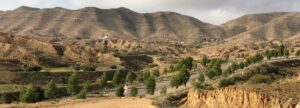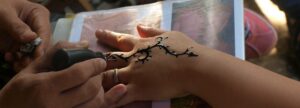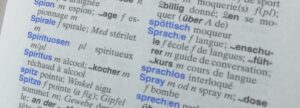Your vacation advisor
Please remember: You have traveled to an Arab country as a guest. Respect people with their idiosyncrasies, customs and traditions. If you don't understand something, don't be afraid to ask!
Arrival / departure day:
According to international regulations, check-in is from 14 p.m. On the day of departure the rooms must be vacated by 12 noon. Please understand that if you arrive in the morning, you will not be able to move into your room directly, as this will first be cleaned for you. The allocation of rooms is the responsibility of the respective hotel management. Half board begins with dinner on the day of arrival and ends with breakfast on the day of departure. If you arrive late in the evening or at night, the hotels are not obliged to provide you with a meal.
Pharmacy:
It is called “Pharmacie” or “Pharmacie de nuit” (night pharmacy) and is marked with a green Maltese cross. Many pharmacies also sell drugstore items. Always have a receipt issued for medication. In order to be able to buy medication that you have brought with you, it is best to bring the original packaging with you so that the pharmacist can offer you an equivalent preparation.
Doctor:
If necessary, you can call a doctor through the hotel reception. The treatment must always be paid for on site in cash and in local currency. Payment is made against a receipt, which you can submit to your health insurance company or travel health insurance company. In the event of a clinic or hospital stay, please contact your insurance company and your tour guide immediately.
Trips:
Djerba and Zarzis are so geographically favorable that you as a holidaymaker can benefit from them. The sea is ideal for sociable boat trips, the mainland can be reached quickly and the desert in southern Tunisia is very close. Bus and Land Rover excursions offer you adventure. You will discover customs and traditions and experience an oriental flair. Competent advice and booking only with your tour guide.
Message:
If you lose your passport or identity card, please contact the German embassy in Tunis or the embassy of your respective nationality immediately. Depending on the loss, a visit to the embassy may be necessary to issue a replacement ID.
Shopping:
Action is the number one rule here! Pay a maximum of 1% of the suggested price in markets and bazaars, orientate yourself beforehand in department stores or shops with fixed prices. In every larger city there are additional market days (you can find out about the places and days from your tour guide). Typical souvenirs are carpets, leather goods, ceramics and gold or silver goods.
Taking photos:
The Koran forbids depicting people. In case of doubt, permission to take photos should be obtained with a small gesture. Military installations, police and praying believers are not allowed to be photographed! Most museums allow photography for a small fee.
Gelder:
The Tunisian currency is the dinar (TND). A dinar is 1.000 millimes. The largest banknote is the 50 dinar note. You should always have change available, as large bills often cannot be changed. You can change cash at the hotel reception or at the bank at the current exchange rate. The redemption is only possible at the bank at the airport on presentation of the bill of exchange. The import and export of Tunisian currency is prohibited.
Dress:
Refrain from wearing valuable, visible jewelry. Open-hearted clothing should not be worn outside of the beach and hotel zone. Mini skirts and shorts are especially not welcome. When visiting a sacred site (e.g. a mosque), make sure you wear decent clothing that covers your shoulders and knees. Sunbathing "topless" is forbidden by law on the beach and can even be punished by the police.
Car Rentals:
Would you like to explore your holiday destination flexibly? Your tour guide will be happy to arrange a car from our rental car partner for you - with a chauffeur on request. The maximum speed in urban areas is 50 km / h, on country roads 90 km / h and on motorways 110 km / h. It is compulsory to wear seat belts. Drive with foresight, because many scooters or other vehicles are poorly lit and difficult to see, especially in the evening.
Post:
There are various post offices in each town. Please ask your tour guide for the opening times. If you want to send a card, then pay attention to the note “par avion” or “by airmail”. Don't forget the destination country so that the card actually arrives. You can find out the amount of postage at reception or from your tour guide.
safe:
You should keep all valuables in the safe. You do not need tickets, passports, ID cards etc. on the beach or on excursions. Neither your hotelier nor your organizer is liable for valuables that are not kept in the safe. Always carry small amounts of money and a copy of your ID with you.
Taxi:
The taxi is a very popular and inexpensive means of transport. All taxis are equipped with a taximeter - make sure it is activated when you start your journey! A night surcharge of 21% is charged for journeys after 50 p.m. You will usually find taxis right in front of your hotel. You can hail a taxi on the street with a small hand signal. The yellow taxis are not allowed to leave the island of Djerba! National taxis/shared taxis are the louages. These are white station wagons marked with a red, blue or yellow stripe. These taxis are not metered. Please negotiate the price before starting the journey.
Phone:
Telephone calls can be arranged through the reception. As this is very expensive, it is advisable to use a public payphone.
Tipping:
A small tip is expected in all service areas. Guide value: 10% of the invoice amount. For a maid or a porter, 1 TND per day / service is appropriate.
Drinking water:
Tap water is not recommended as drinking water, but it is suitable for brushing teeth. Mineral water is available from your hotel.






